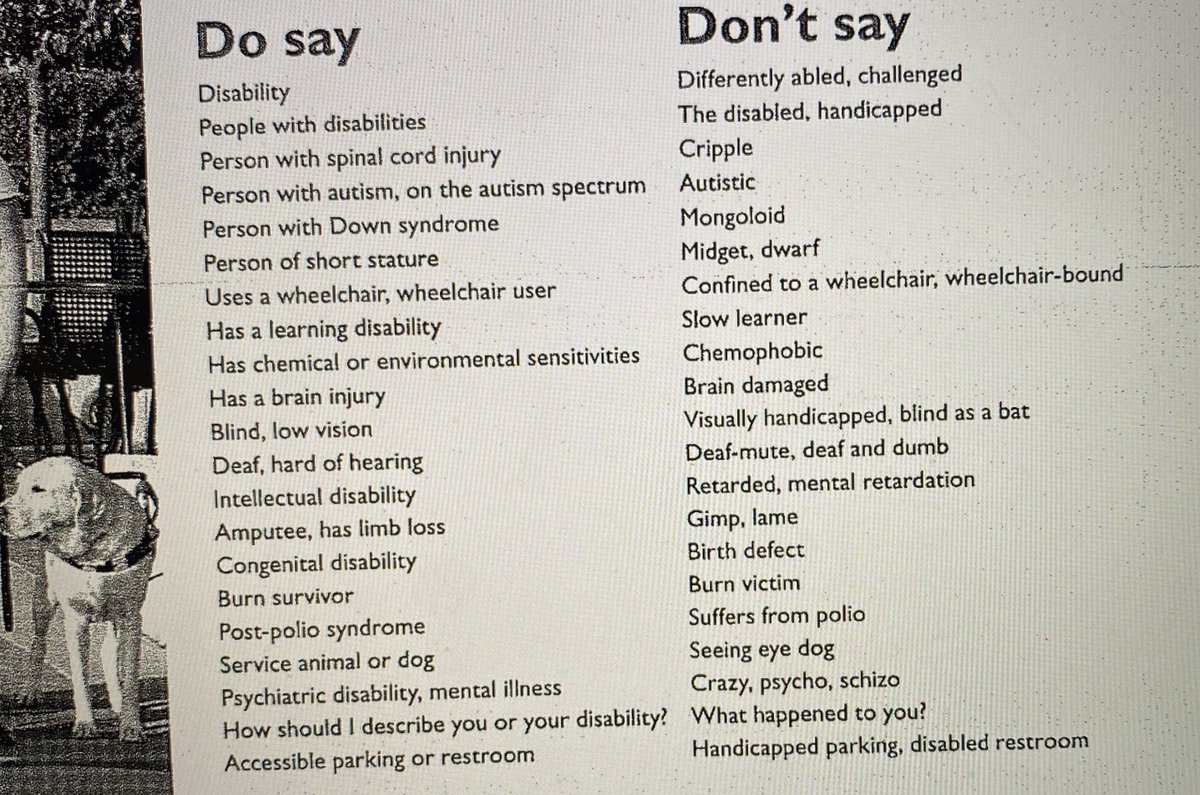
Parents of autistic kids: here are some tips on how to better interact with the autistic community.
These are based on observations I’ve made over the past four years doing advocacy work.
If you’ve read my thread from the other day, make sure you read this one too.
These are based on observations I’ve made over the past four years doing advocacy work.
If you’ve read my thread from the other day, make sure you read this one too.
1. Remember that the people you’re talking to are autistic, and might have a hard time modulating their “tone.”
If the person talking to you seems blunt, it usually doesn’t mean they’re trying to be rude.
Try to focus on the substance and direct meaning of their words.
If the person talking to you seems blunt, it usually doesn’t mean they’re trying to be rude.
Try to focus on the substance and direct meaning of their words.
2. A lot of the beliefs you have about autism, especially if you’re new to the community, are probably wrong.
That’s not a moral judgment. It’s okay to not know things. You just also have to be willing to learn.
And learning will probably make you uncomfortable sometimes.
That’s not a moral judgment. It’s okay to not know things. You just also have to be willing to learn.
And learning will probably make you uncomfortable sometimes.
3. Most autistic people are traumatized. One common source of trauma is our parents/guardians, and teachers/therapists.
The way we interact with you when talking about parenting styles, or ABA, is going to be affected by traumatic experiences we’ve had.
That’s okay. Listen.
The way we interact with you when talking about parenting styles, or ABA, is going to be affected by traumatic experiences we’ve had.
That’s okay. Listen.
4. Autistic people are often highly sensitive, and direct with our communication.
If you perceive us as “reacting to something that isn’t a big deal,” please recognize that because of the way we’re processing the situation, it *is* a big deal to us.
Again, just listen.
If you perceive us as “reacting to something that isn’t a big deal,” please recognize that because of the way we’re processing the situation, it *is* a big deal to us.
Again, just listen.
5. The vast majority of autistic people just want to help your kids live their best lives.
We don’t have ulterior motives, we’re not trying to be mean to you, etc.
We’re just trying to help you and your child. That’s our goal.
We don’t have ulterior motives, we’re not trying to be mean to you, etc.
We’re just trying to help you and your child. That’s our goal.
6. If you’ve been immersed in the “treatment” culture of autism before encountering us, a lot of the things we say are going to make you react defensively.
Recognize when you’re getting defensive, and ask yourself why.
Instead of reacting, ask questions when you’re confused.
Recognize when you’re getting defensive, and ask yourself why.
Instead of reacting, ask questions when you’re confused.
7. If the vast majority of autistic people agree on a certain topic, listen and do some research to find out why.
Don’t play devil’s advocate on the issue of person-first language, etc.
And don’t speak over us when we articulate what we want for the community.
Don’t play devil’s advocate on the issue of person-first language, etc.
And don’t speak over us when we articulate what we want for the community.
8. Don’t assume things about our childhood or our support needs based on the way we present ourselves online.
Recognize that many of us were once (or still are) just like your child.
When we tell you how our autism manifests (now or in the past), believe us.
Recognize that many of us were once (or still are) just like your child.
When we tell you how our autism manifests (now or in the past), believe us.
9. Perhaps most importantly, do your own research and seek out resources that are recommended by the community.
You can start with the Thinking Person’s Guide To Autism, autismacceptance.com, and the general ASAN website.
Thanks for listening! :)
You can start with the Thinking Person’s Guide To Autism, autismacceptance.com, and the general ASAN website.
Thanks for listening! :)
• • •
Missing some Tweet in this thread? You can try to
force a refresh








